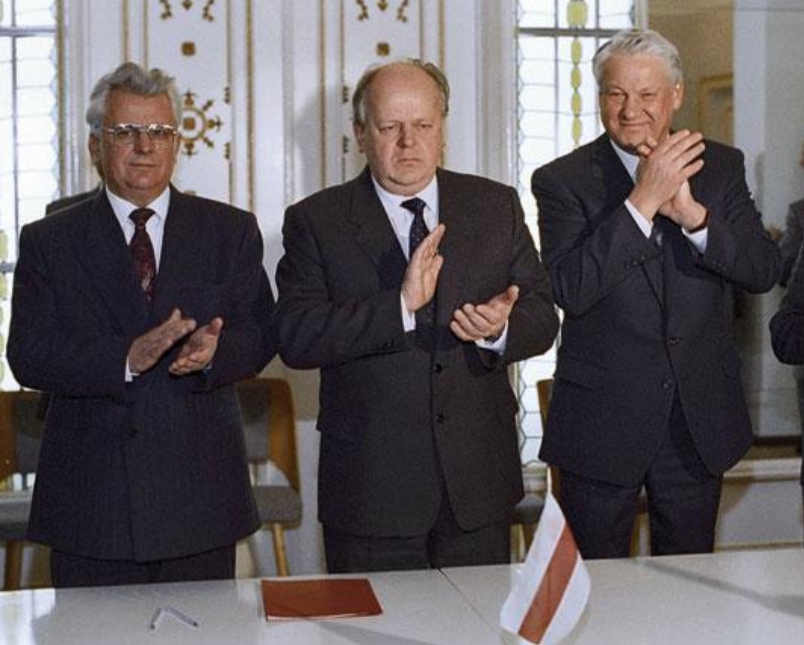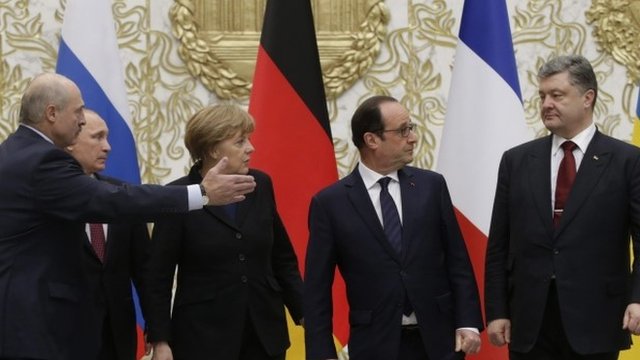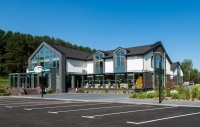Minsk Dialogue Conference: Belarus to Become a Regional Hub for Expert Diplomacy

Minsk has recently reaffirmed its status as a regional diplomacy hub. Western governments have been eager to praise Belarus’ role in the Ukraine peace process and became receptive to the Belarusian regime’s ideas on reformatting the Eastern Partnership initiative.
This week not only politicians but experts as well will come to Belarus to discuss acute regional problems at the Minsk Dialogue conference on 26 – 28 March. Experts from leading European and Russian think tanks, such as Chatham House and Ośrodek Studiów Wschodnich, will focus on how to bridge the growing divide between two regional initiatives – the Eurasian Union and the Eastern Partnership.
Minsk as a Venue for Multilateral Talks
Over the last several months Minsk hosted a series of talks in various formats on the crisis in Ukraine. This comes as a continuation of the tradition of Belarus serving as a venue for international diplomacy. In fact, Minsk hosted more high level and symbolic regional meetings in the last decades that most nearby capitals.
In December 1991, leaders of Belarus, Russia and Ukraine, still parts of the USSR, came to the Viskuli hunting estate in Belarus to carry out negotiations which resulted in the dissolution of the Soviet Union and the creation of the Commonwealth of Independent States.
Since then, Minsk boasts of an informal status of the “CIS capital”, where the organisation’s Executive Committee, Economic Court and some specialised agencies reside. The Belarusian capital also hosts the Court of the Eurasian Economic Union. Minsk has become a preferred homebase for numerous post-Soviet integration summits.

In 1992, Belarus offered its capital city as a venue for the awaited peace conference on Nagorno-Karabakh. The conference has yet to happen, but the Belarusian capital has already lent its name to the OSCE Minsk Group dealing with this conflict. Recently, Foreign Minister Vladimir Makei met in Minsk with the Group’s co-chairs to discuss Belarus’ potential contribution to the peace process.
Minsk obtained international recognition of its status as a regional hub of diplomacy when it hosted a series of important meetings seeking to resolve the crisis in Ukraine.
The first major meeting took place in August 2014 and brought to Minsk the presidents of Kazakhstan, Russia and Ukraine and three top EU commissioners. The second, in February 2015, gathered Angela Merkel, François Hollande, Vladimir Putin and Petro Poroshenko together in Alexander Lukashenka’s lavish Minsk residence.
Minsk, chosen for its logistical and political convenience, has demonstrated ability to organise intricate international meetings in an expedient and efficient manner.

From Official Diplomacy to an Expert Dialogue
This week Minsk will also become a venue for a major expert meeting. As a result of historical, linguistic and visa issues, very few forums exist where experts from post-Soviet countries and their Western colleagues can exchange views and formulate advice for decision-makers. Think tanks remain largely national initiatives, rooted in the views of one country. Analysts from two different worlds often live in their own bubbles because of language barriers, a lack of open communication channels and financing.
Minsk has an excellent chance to become a hub of productive dialogue among post-Soviet and Western think tanks. Belarus has close relations with Russia but it has never severed its civilisational ties with the Western world. It also uniquely belongs to both the Eastern Partnership and the Eurasian Union.
Minsk Dialogue: Bridging the Divide
The Minsk Dialogue conference, which will take place in Minsk on 26 – 28 March, has the ambitious goal of establishing a unique platform to bring together think tanks from East and West for regular expert meetings and joint publications.
Two Belarusian think tanks – the Liberal Club and the Ostrogorski Centre – have been working together to make the first Minsk Dialogue event happen. The Ostrogorski Centre is a private, nonpartisan policy research outfit uniting experts based in Belarus and elsewhere in Europe. The Liberal Club is a Minsk-based NGO that organises regular public events involving the government, opposition and independent experts from Belarus and the region.

“The EU – Russia – EAEU summit in August 2014 in Minsk made me think of Belarus as a potential Eastern European Switzerland, sort of a diplomacy oasis. I wondered whether it would be possible to organise an expert dialogue alongside official diplomacy. Remarkably, most of my contacts among diplomats, officials and analysts met this idea with enthusiasm”, says Yauheni Preiherman, policy director at the Liberal Club and a regular contributor to Belarus Digest, a project of the Ostrogorski Centre.
The inaugural Minsk Dialogue conference, sponsored by the European Commission, PACT and other donors, will focus on developments in the EU and Russia’s shared neighbourhood. It uniquely convenes experts from Russia, the EU, and post-Soviet countries caught in between both entities at the same table in the midst of the Ukraine crisis.
The event will bring together up to thirty leading researchers and political analysts from the European Union, Russia and Eastern Partnership countries. Arkady Moshes from the Finnish Institute of International Affairs will chair the session “The Eurasian Economic Union: Legitimate Grouping or Veil for Revanchism?”. James Nixey (Chatham House, UK) will steer the debate on the causes for the regional divide.
Belarusian and foreign diplomats will make their contribution to the Minsk dialogue. A representative of the Belarus Foreign Ministry will open the conference, held in a prestigious hotel in downtown Minsk and at a scenic club just outside of the city. Ambassador Maira Mora, Head of EU Delegation to Belarus, will lead the discussion on the reform of the European Neighbourhood Policy.
According to the conference programme, except for the introductory session, the event will take place under Chatham House Rules so that the participants can engage in open and sincere debate.
Focus on Concrete Recommendations and the Riga Summit
As the event takes place two months ahead of the Eastern Partnership summit in Riga, the experts will focus on formulating concrete recommendations which will be presented to policy-makers in Riga.
The organisers hope to transform the conference into a durable and inclusive expert network capable of promptly reacting to the ever-evolving situation in the region. Experts’ qualifications and the reputations of the think tanks they represent guarantee that the decision-makers will give a fair hearing to their recommendations.
Yarik Kryvoi & Igar Gubarevich
Yarik Kryvoi is Editor-in-Chief of Belarus Digest and the founder of the Ostrogorski Centre.
Igar Gubarevich is a senior analyst of the Ostrogorski Centre who in the past worked in various diplomatic positions at the Belarusian Foreign Ministry.



